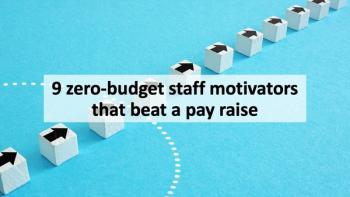
Keeping Up With Technology: A Must for Medical Practices
Don't be afraid to try new technology at your medical practice. If there's a hot new device or productivity program, there's probably a reason for it being so popular.
Still carrying around that BlackBerry you've had for the last five years? Still using Microsoft 2003 on that XP machine of yours? Still think the "cloud" is a fad? You might be doing yourself and your business a disservice if you answered "yes" to one or more of those questions.
Keeping up with the ever-changing world of technology is tough. Change can be hard. It's much easier to keep the status quo and ignore all the technological advances happening around you. The problem is, if you don't adapt and keep up with technology, you'll miss out on all the advancements and benefits it has to offer.
That trusty BlackBerry took too long to embrace touch-screen technology and missed out on creating a robust app store. The result is you can't check into your American Airlines flight on your phone, you can't use Hailo to get a cab, you can't access your Google Drive documents, and you can forget about looking up restaurant reviews on Yelp. Basically, even though switching to an Android or iOS device may be inconvenient in the short-run, the long-term benefits are well worth it. You'll have to learn how to use a new tool but that took has far more uses.
Technology in the workplace can mean the difference between a successful business and a failing business. Capable hardware and efficient software will keep your office running in tip-top condition and will allow your employees to focus on their jobs instead of troubleshooting their computers.
Look into Web-based programs that can be accessed remotely and that have export features that allow you to easily extract the data you need. Productivity suites like Google Documents are free and offer a comparable experience to the costly Microsoft Office standard (Google documents are compatible with MS Word). If you have to use Microsoft Office, don't skip on more than one major update. The difference between Word 2007 and Word 2010 is probably greater than you think.
The anxiety in introducing new technology to your office staff lies in the assumption that each employee has a different adoption threshold; some will "get it" and others will struggle. That's not as big of a hurdle as it's been in the past, as technology has become more uniform. Most people have a smartphone of some design, and many have households with smart TVs, multiple computers, and other universal technologies. Like all things, it may take a day or two for your staff to become comfortable with the new work flow, but your bottom line...and talent pool...will appreciate it.
In summary, don't be afraid to try new technology. If there's a hot new device or productivity program, there's probably a reason for it being so popular. Don't turn your practice into a technological ghost-town. Think about what your competition is doing.
In regards to technology, it’s good to be a leader and it’s also good to be a follower ... just make sure you’re one of them versus neither of them.
Newsletter
Optimize your practice with the Physicians Practice newsletter, offering management pearls, leadership tips, and business strategies tailored for practice administrators and physicians of any specialty.








